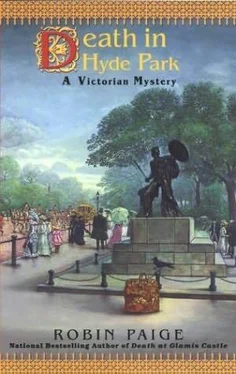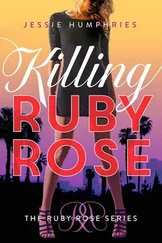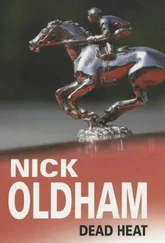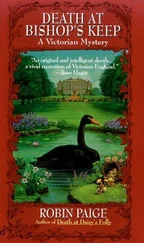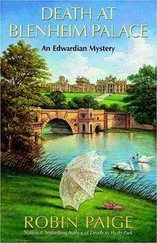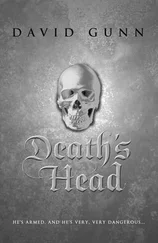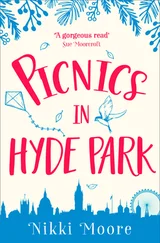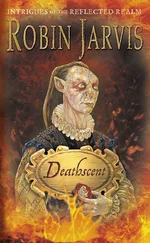Robin Paige - Death in Hyde Park
Здесь есть возможность читать онлайн «Robin Paige - Death in Hyde Park» весь текст электронной книги совершенно бесплатно (целиком полную версию без сокращений). В некоторых случаях можно слушать аудио, скачать через торрент в формате fb2 и присутствует краткое содержание. Жанр: Классический детектив, на английском языке. Описание произведения, (предисловие) а так же отзывы посетителей доступны на портале библиотеки ЛибКат.
- Название:Death in Hyde Park
- Автор:
- Жанр:
- Год:неизвестен
- ISBN:нет данных
- Рейтинг книги:5 / 5. Голосов: 1
-
Избранное:Добавить в избранное
- Отзывы:
-
Ваша оценка:
- 100
- 1
- 2
- 3
- 4
- 5
Death in Hyde Park: краткое содержание, описание и аннотация
Предлагаем к чтению аннотацию, описание, краткое содержание или предисловие (зависит от того, что написал сам автор книги «Death in Hyde Park»). Если вы не нашли необходимую информацию о книге — напишите в комментариях, мы постараемся отыскать её.
Death in Hyde Park — читать онлайн бесплатно полную книгу (весь текст) целиком
Ниже представлен текст книги, разбитый по страницам. Система сохранения места последней прочитанной страницы, позволяет с удобством читать онлайн бесплатно книгу «Death in Hyde Park», без необходимости каждый раз заново искать на чём Вы остановились. Поставьте закладку, и сможете в любой момент перейти на страницу, на которой закончили чтение.
Интервал:
Закладка:
One of Savidge’s several clerks, dressed in a natty gray suit and cravat, glanced up from the telephone when Charles entered. He gave his name and was rewarded with a welcoming smile. “I believe Mr. Savidge is ready for you, Lord Sheridan,” the clerk said crisply, and Charles was shown in. A second clerk followed with a silver tray on which were a pot of coffee and two cups. He poured the coffee and disappeared.
Edward Savidge was seated at an enormous desk, completely clear except for the paper on which he was making notes. Behind him was a window that looked out over the pleasant walks and green lawns of the inner court of Gray’s Inn. He stood and extended a hand, smiling broadly.
“Sheridan, old fellow!” he said, in a deep, booming voice that could reach to the farthest seat in the courtroom. “Very good to see you.”
“Indeed,” Charles said, grasping the heavy hand. “What has it been? A year or better?”
Savidge was a large and powerful man, well over six feet and weighing some fifteen stone, well-featured, with an enormous head of curling black hair. His eyes were dark and deepset under heavy brows and a thick black moustache did not hide his mobile mouth or ironic half-smile; in court, he carried himself like an accomplished actor, playing with deliberate effect to the judge and jury. Charles knew him to be a brilliant advocate and relentless cross-examiner.
They exchanged pleasantries-Charles asked after Mrs. Savidge, a well-known beauty who had disappointed half of the eligible bachelors of London when she married Savidge some five years before; and Savidge asked after Kate, whom he called “that splendid American treasure of yours.” He passed Charles a cup of coffee and then opened a box of fine Cuban cigars, from which Charles chose one.
Proffering a light, Savidge said, “Well, now, Sheridan, suppose you tell me what this is all about. You haven’t let your liberal views lead you into difficulties, have you?”
“Not yet,” Charles said with a small smile, putting his cup on the table beside him. “At least, not directly.” He pulled on his cigar, sat back in the massive leather chair, and went straight to the point. “The firm of Masters, Morley, and Dunderston has decided to ask you to represent a client of theirs named Adam Gould. I hope you will agree to defend the two men who are accused with him.”
“The charge?” Savidge asked.
“Possessing explosives with intent to harm.”
“Ah,” Savidge said judiciously. “Those Anarchist fellows picked up at the Clarion, eh? The ones who worked with the young chap who blew himself up in Hyde Park?”
“Yes,” Charles replied. He eyed his friend, wondering if he had promised something he could not deliver. Savidge was the right advocate, but would he take the case? “It’s not going to be an easy charge to defend,” he said. “But as I recall, you have always enjoyed a challenge.”
Savidge had for some years worked in the offices of Mr. George Lewis, the lawyer who represented the affairs-of the purse and the heart-of half the aristocracy. But after a few years as a solicitor, Savidge had been admitted to the Bar and now specialized in representing people who had gotten themselves into serious difficulties, in one way or another. Since most of his clients were quite wealthy, his practice was a lucrative one, as was readily evident from his well-appointed office.
“Tell me about it,” Savidge commanded, and Charles complied. He concluded his narrative with, “I very much doubt that a man of Adam Gould’s stature with Amalgamated would put himself and his future at risk by possessing explosives.” He paused. “Gould is a friend to Anarchists, there is no doubt about that, and he is an admirer and, I suspect, would-be lover of the Clarion ’s editor, Miss Conway. But he denies any knowledge of the explosive material found in his rooms, and I believe him.”
“These others-Kopinski and Mouffetard-they also deny possession?”
Charles nodded. “I cannot vouch for them, of course. One or the other of them may have been involved in the Hyde Park bombing. At this point, it is difficult to say, although I hope to have more information along those lines soon.” He paused, half-tempted to tell Savidge of Ponsonby’s visit and the Crown’s interest in the affair. But he decided against it, since it had little to do with the task of defending the men, and Savidge might find it distracting.
Lounging in his chair, Savidge regarded the glowing tip of his cigar. “You think Special Branch may have wanted some extra insurance against their targets?” he asked dryly.
“Perhaps,” Charles said. “All of the staff at the Clarion believe they were followed by the police for a period of some weeks before the Hyde Park incident, although Kopinski seems to think that a Russian agent is after him. I gather that he is considered to be an enemy of the Romanov regime, although I can’t yet tell you why.”
“An agent provocateur, eh?” Savidge said, raising his heavy eyebrows. “There seem to be a great many of those chaps wandering about the East End these days, all trying to dislodge refugees of one nationality or another, or otherwise cause trouble. I imagine that the Yard would like to be rid of the whole lot. Those foreign agents take up far too much of Special Branch’s attention.”
“Special Branch is in a difficult position just now,” Charles said. “The City has been swarming with heads of state and visiting dignitaries-almost like a plague of locusts-since before the first scheduled date of the Coronation. Ensuring their safety no doubt required a monumental effort, and the explosion in Hyde Park must have rattled the Yard all the way up to the commissioner. But that does not permit them to-”
“To manufacture evidence, mistreat members of the Press, and arrest emigres who have sought refuge in London, et cetera et cetera.” With a bored expression, Savidge flicked the ash from his cigar. “I don’t like to disappoint you, Sheridan, but there must be a more compelling reason why I should become involved with this affair. I am of course interested in the possibility of laying hands on a policeman who manufactures evidence, but such a thing is deucedly hard to prove, even when one knows it is true. And Anarchists are hardly my dish of tea.”
“There is a compelling reason,” Charles said. He pursed his lips. “The case may involve the use of fingerprints.”
Savidge’s eyebrows went up again. “You’re saying-”
“I’m saying that if the police are telling the truth about those ginger-beer bottles, the defendants’ fingerprints should be all over them. If, however, the only prints belong to the police, or to some unidentified party-”
“I see,” Savidge said thoughtfully. “I must say, that changes things, doesn’t it, old chap?”
Charles knew exactly what lay behind Savidge’s sudden interest. It had to do with the fingerprints of a man named Harry Jackson, whose trial for burglary was scheduled at Old Bailey a fortnight hence. If the Crown’s prosecution was successful, the case would certainly become a forensic landmark, a vindication of a new system of criminal identification, and a proud feather in the cap of Scotland Yard’s new head of the Criminal Investigation Department and Assistant Police Commissioner of London, Edward Henry.
Henry had begun his work with fingerprints in the 1890s, when he was in charge of the Bengali police in British India. An intelligent and cultivated man, he had a mathematical bent and strong organizational abilities. Having become acquainted with the fingerprint studies of Sir Francis Galton, Henry developed a system that included not only taking the fingerprints, but classifying, indexing, filing, and retrieving them, and in 1906, implemented it in Bengal, where it replaced the current anthropometrical identification system called bertillonage, after the Frenchman who had developed it twenty years before. Henry thereupon proposed the new method to the Governor General of India. It was quickly adopted, proving to be a faster and more reliable method of identification than the slower, more complicated bertillonage.
Читать дальшеИнтервал:
Закладка:
Похожие книги на «Death in Hyde Park»
Представляем Вашему вниманию похожие книги на «Death in Hyde Park» списком для выбора. Мы отобрали схожую по названию и смыслу литературу в надежде предоставить читателям больше вариантов отыскать новые, интересные, ещё непрочитанные произведения.
Обсуждение, отзывы о книге «Death in Hyde Park» и просто собственные мнения читателей. Оставьте ваши комментарии, напишите, что Вы думаете о произведении, его смысле или главных героях. Укажите что конкретно понравилось, а что нет, и почему Вы так считаете.
